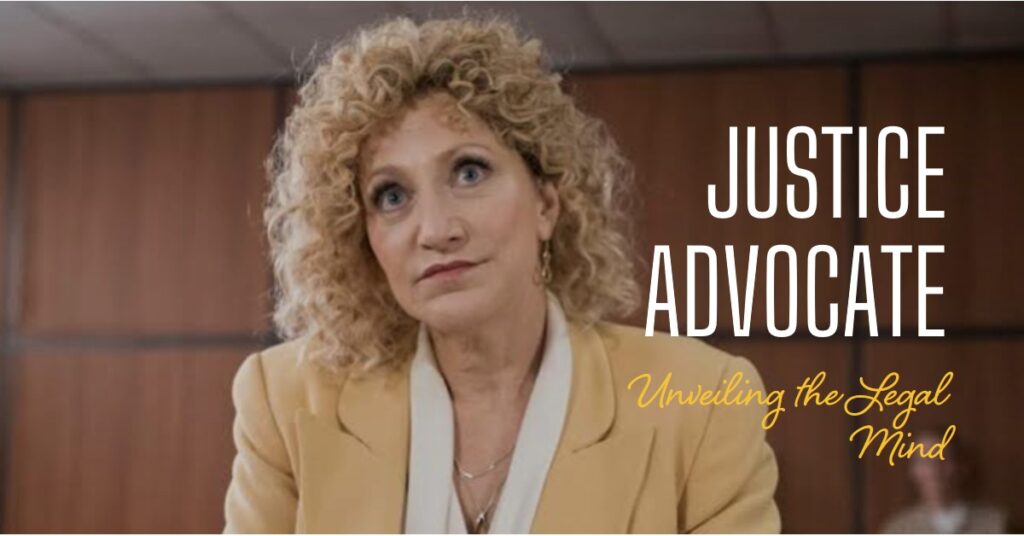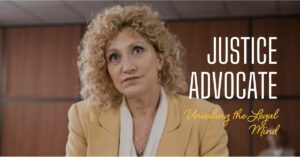Leslie Abramson – The Lawyer of the infamous Menendez Brothers.
7 min read
Leslie Abramson’s role in the Menendez trial was about challenging the narrative, questioning the justice system,.....
The Menendez brothers are back in the spotlight, thanks to “Monsters: The Lyle and Erik Menendez Story,” accompanied by a Netflix documentary that shows the brothers’ perspective on the case that rocked the ’90s. Lyle and Erik Menendez, now convicted of the brutal 1989 murders of their parents, Jose and Kitty Menendez, are revisiting the trial that turned into a media circus and captivated the nation.
The brothers, who were found guilty in 1996, were represented by Leslie Abramson, a powerhouse defense attorney who fiercely defended Erik through two trials, including the first, which ended in a hung jury.
Although Abramson didn’t directly contribute to Netflix’s latest documentary, her presence is very large. The documentary features a statement from her where she makes it clear she has no interest in revisiting the past. “It’s been 30 years,” she wrote in an email. “30 years is a long time. I’d like to leave the past in the past. No amount of media nor teenage petitions will alter the fate of these clients. Only the court can do that and they have ruled.”
Abramson’s response highlights her desire to move on, but with the public still obsessed with the case, it’s clear the Menendez brothers’ saga isn’t fading anytime soon.
The 4’11 Powerhouse
Leslie Abramson, defense attorney, hailed from Queens, New York. Standing at just 4 feet 11 inches, her fiery presence far exceeded her stature. With what The Washington Post once called a “whorl of blond hair” and a “distinctly feral quality,” she earned her reputation as a “fire-eating, mud-slinging, nuclear-strength pain in the legal butt” back in 1996. Abramson was nothing short of a legal juggernaut—unapologetic, relentless, and revered in the courtroom.
After getting married and becoming a mom, Abramson decided to shake up her life and moved to Los Angeles. She earned her law degree from UCLA in 1964, plunging headfirst into criminal defense. Following her divorce in 1969, she married Los Angeles Times reporter Timothy Rutten and carved her path through L.A.’s public defender’s office before opening her own private practice.
Abramson was the defense attorney. She was Saul Goodman, the only difference being she was real. Twice named trial lawyer of the year by the L.A. Criminal Courts Bar Association, she made a name for herself by tackling seemingly impossible cases. Vanity Fair’s Dominick Dunne even described her as “the most brilliant Los Angeles defense lawyer for death-row cases” in a 1990 story about the Menendez brothers. By 1990, Robert Rand’s The Menendez Murders noted she had defended over 600 felony cases—an extraordinary feat.
Her legal resume boasted some high-profile cases. In 1988, Abramson represented Arnel Salvatierra, who was charged with first-degree murder for killing his father. She argued that Salvatierra had endured abuse at his father’s hands, and ultimately, her client was convicted of voluntary manslaughter and received probation, a rare victory in such a case. Then there was the chilling 1990 case of Dr. Khalid Parwez, a gynecologist accused of murdering and dismembering his son. Thanks to Abramson’s defense, Parwez was acquitted, solidifying her reputation as a defender of the seemingly indefensible.
Even with a long list of successes, one of her clients, Ricky Sanders, did receive the death penalty for a 1980 robbery-turned-shooting at Bob’s Big Boy. Four people lost their lives that day, and Sanders was sentenced to death in 2017. It was an exception in Abramson’s career, where her legend for keeping clients off death row had become almost mythical.
After the Menendez brothers’ trials, Abramson remained in the spotlight, defending record producer Phil Spector when he was charged with second-degree murder following actor Lana Clarkson’s death in 2003. Abramson replaced the well-known Robert Shapiro (part of O.J. Simpson’s defense team) but later stepped down from the case. Spector was eventually convicted in 2009.
Abramson’s deep connection to justice stemmed from her roots. Speaking to The Washington Post, she explained how her upbringing shaped her worldview. Her family, survivors of the Holocaust, instilled in her a deep mistrust of government overreach. “I have always been very concerned about the government overreaching,” she said. “They have the power to destroy individuals, which is us. A murderer is a citizen. The laws are the first line of attack on citizens. If the government is going to take on a citizen. In that case, it’s under the criminal laws … then you have a multi-million-dollar agency prosecuting a crime, and you are the indigent. This is not a level playing field.”
Also you like this : Your Topics, Multiple Stories
The Menendez Trial and Leslie Abramson
Leslie Abramson played a big and highly controversial role in the Menendez brothers’ trials, representing Erik Menendez throughout both legal battles. The first trial in 1993 ended in a hung jury, but the second, in 1996, resulted in Erik’s first-degree murder conviction. Abramson fought ferociously for Erik, but her strategy—and some of her behind-the-scenes actions—raised plenty of eyebrows.
The core of Abramson’s defense was rooted in the horrific abuse she claimed Erik and his brother Lyle had suffered at the hands of their father, José Menendez. However, this wasn’t an easy strategy to push through. There was a heated debate between Abramson and Lyle’s defense attorney, Jill Lansing. Lansing wasn’t convinced they should expose the allegations of abuse, preferring a more reserved approach, while Abramson saw it as the heart of the brothers’ defense. Abramson, determined as ever, went ahead with the argument that the abuse Erik endured mitigated the severity of his crime.
But the real controversy hit when Abramson was accused of something far more damning than a legal disagreement. In a bombshell revelation during the 1996 retrial, it came out that Abramson allegedly pressured Erik’s psychiatrist, Dr. William Vicary, to alter and delete parts of his therapy notes—an action that led to a firestorm of ethical questions. According to the California Medical Board’s disciplinary filing, Abramson reportedly instructed Vicary to erase and rewrite critical portions of his notes to conceal incriminating statements Erik made during therapy.
When Vicary testified during the retrial, he revealed that he had removed sections of his notes at Abramson’s insistence. But Abramson stood firm, invoking her 5th Amendment right against self-incrimination and arguing that attorney-client privilege protected her actions. She defended herself, telling The Washington Post, “I never told him to rewrite the notes.” Abramson maintained that she simply asked Vicary to clarify certain passages or white out portions of the notes, a far cry from the outright deception she was accused of.
Vicary’s version of events, however, painted a different picture. He claimed they “argued for hours” about the matter and that Abramson’s insistence on removing specific details led him to conclude that rewriting was the only way to satisfy her demands. “Had she just said, ‘Wipe this out, cross it out, black it out,’ don’t you think I could have just done it right there in her office?” Vicary told the Los Angeles Times. The psychiatrist found himself placed on probation for three years and removed from the panel of experts who assess criminal defendants in Los Angeles County courts.
Despite the controversy, Abramson remained on the case, though under a gag order, preventing her from directly addressing the jury. Her co-counsel took over the courtroom reins, but Abramson’s influence still loomed large. After the case wrapped up, she was investigated by the California State Bar and was cleared of any professional misconduct in 1999.
Abramson never dithered in her defense of the Menendez brothers, always adamant that they were more victims than villains. In an interview with The Washington Post in 1996, she said, “These are not murderers. These are troubled kids in a very difficult and grotesque home environment, and they cracked.” Even after their conviction, Abramson voiced her outrage over the verdict, describing it as a “grotesquely disproportionate” punishment for what had happened. “When children kill their parents, something is wrong in that family,” she declared, making her stance on the case crystal clear.
Leslie Abramson’s role in the Menendez trial was about challenging the narrative, questioning the justice system, and stirring up ethical debates that stayed long after the gavel fell.
Where is the Menendez Brothers’ Lawyer today?
After the Menendez trial, Leslie Abramson seemed to long for something quieter. In fact, as Robert Rand reported, Abramson once told a reporter, “What I would really like to do is become completely invisible for the rest of my life because I don’t find celebrity very much fun.” And while she did step back from the spotlight, her reputation as a formidable defense attorney remained firmly intact.
Following the Menendez saga, Abramson published a memoir titled “The Defense is Ready: Life in the Trenches of Criminal Law,” giving readers an inside look at her high-stakes career. She continued to represent accused murderers, further cementing her legacy in criminal law, and made appearances as a legal commentator on shows like Nightline and Court TV. Her sharp legal mind and fiery personality were still in demand.
However, her personal life took a turn in 2007 when she divorced Timothy Rutten, her longtime husband and a Los Angeles Times reporter. Despite the personal and professional turbulence, Abramson maintained a relatively low profile, even as she retired from practicing law.
Though retired, she still occasionally steps into the public eye. In 2015, Abramson delivered the prestigious Ruth Bader Ginsburg lecture at Thomas Jefferson Law School in San Diego. During her speech, she highlighted something she believes sets women apart in criminal law: “What I think is something necessary to be a great criminal lawyer is something I think women already have—a desire to understand people and human relationships.” Spoken like a true legal warrior who always fought not just for clients but for the humanity behind every case.
Abramson may not seek the limelight, but her legacy as a defense attorney continues to reverberate throughout American legal history.







